ALGARVE
History

History
Popular destinations PORTUGAL
| Algarve | Azores | Costa de lisboa |
| Costa verde | Madeira |
History Portugal
Antiquity
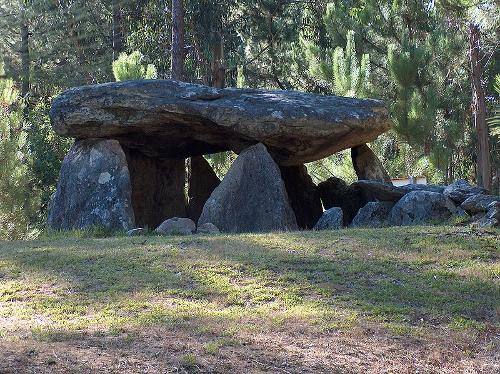 Dolmen of Cerqueira, PortugalPhoto: João Carvalho CC 3.0 Unported no changes made
Dolmen of Cerqueira, PortugalPhoto: João Carvalho CC 3.0 Unported no changes made
The oldest traces of man and civilization are from 8000 BC. Celts and Lusitanians were the first important inhabitants of Portugal. The Romans arrived in Portugal at the beginning of the second century BC and stayed there for more than 600 years. At first, they met a lot of opposition, especially from the able-bodied Lusitani. In 27 BC Augustus divided the Iberian Peninsula into three provinces. Tarraconensis (east and north), Baetica (south) and Lusitania (west), the latter province not entirely coinciding with the territory of present-day Portugal. Traces of the Romans are still there in the form of roads and bridges and places like Evora and Conimbriga. The Portuguese language also comes from Latin.
The Moors
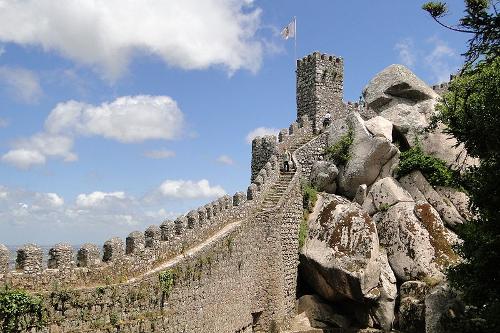 Moorish Castle of Sintra, PortugalPhoto: Adam Jones CC 2.0 Generic no changes made
Moorish Castle of Sintra, PortugalPhoto: Adam Jones CC 2.0 Generic no changes made
After a brief domination of the Germans, the next invasion became significant, that of the Moors. Taking advantage of the divisions of the Germanic rulers, the Moorish general Tarik ibn-Ziyad crossed over to Spain in 711 and a little later also present-day Portugal. Within ten years the Moors were masters of the peninsula, save for some inhospitable regions of mountainous Asturias. The rule of the Moors has lasted for centuries and has been of great significance in Portugal. The Moorish influence was particularly strong in southern and central Portugal. Algarve is a Moorish word which means the West. The Moors brought with them the Islamic culture. Food and architecture still show Moorish features.
The Burgundian House
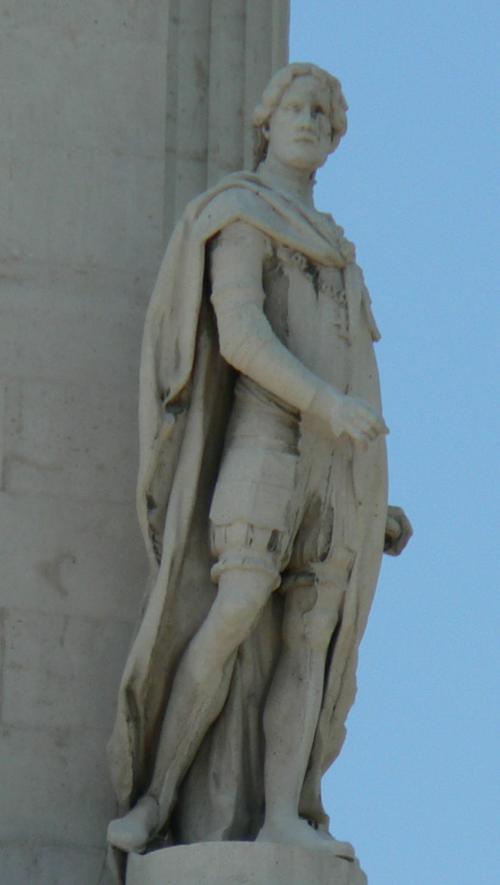 Alfonso I of PortugalPhoto: Basillio CC 3.0 Unported no changes made
Alfonso I of PortugalPhoto: Basillio CC 3.0 Unported no changes made
After much struggle and with the help of the crusaders, Lisbon fell in 1147 to Alfonso I Henriques (1139-1185). He accepted the title of king, which was recognized by Castile and Rome after many struggles. His successors, named Sancho and Alfons in turn, expanded the area and managed to maintain themselves as sovereign princes. Alfons III conquered the last strongholds of the Moors in the Algarve in 1249. With this Portugal got its current national borders. The house eventually dies out due to a lack of male heirs to the throne.
The House of Avis
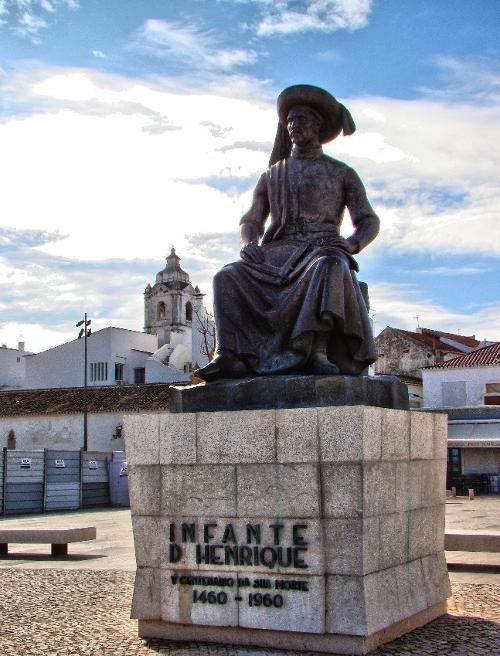 Henry the Navigator, PortugalPhoto: Lacobrigo CC 3.0 Unported no changes made
Henry the Navigator, PortugalPhoto: Lacobrigo CC 3.0 Unported no changes made
During the plight after the extinction of the house of Burgundy, a number of neighbors turned their eager eyes on Portugal. But neither the bourgeoisie nor the nobility allowed this to happen. Field Lord Nuno Alvares Pereira made sure that in 1385 a bastard came to the throne Joao I. With the new king, the house of Avis was created.
His son Hendrik the Navigator (1394-1460) laid the foundations for the Portuguese empire. Madeira and the Azores had already been discovered at his death and the Portuguese in Africa had already reached Sierra Leone. Portugal had become the foremost maritime power in Europe. The main explorers were Vasco da Gama (he discovered the sea route to India, where he set foot ashore in 1498) and Pedro Alvares Cabral (he discovered Brazil in 1500. This took place under the rule of Manuel I (1495-1521). Portugal slowly fell into decline, and after a failed campaign against the Moors in Morocco in 1578, the Spaniards took power in 1580.
Spanish rule
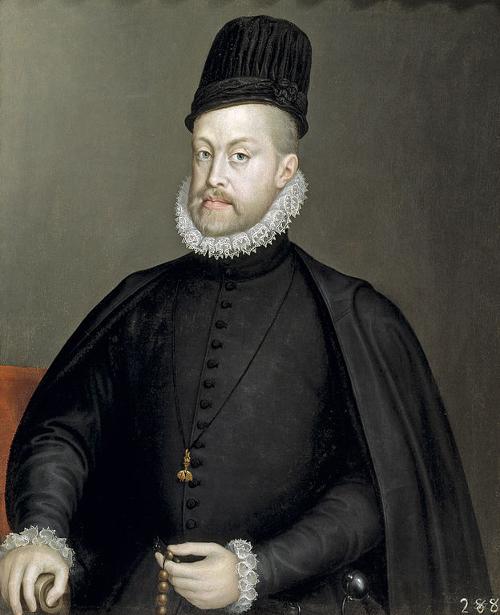 Philip II of SpainPhoto: Public domain
Philip II of SpainPhoto: Public domain
Philip II was quite loyal in recognizing Portuguese autonomy, but Spain's enemies, especially the Republic, settled on seeing Portugal as an enemy as well. The East India Company conquered large parts of the Portuguese empire in the east, the West India Company settled in Northeast Brazil. It was also fatal for Portugal to be involved in Spain's numerous wars with other European powers. Economically and socially, the country became more and more exhausted, especially under Philip III and IV, who regarded Portugal simply as a province of Spain. But Portuguese nationalism increasingly resisted oppression and exploitation. At the end of 1640, a small group of conspirators put an end to Spanish rule. This was enthusiastically welcomed by the vast majority of the population. The Duke of Braganca was proclaimed King Joao IV.
The House of Braganca
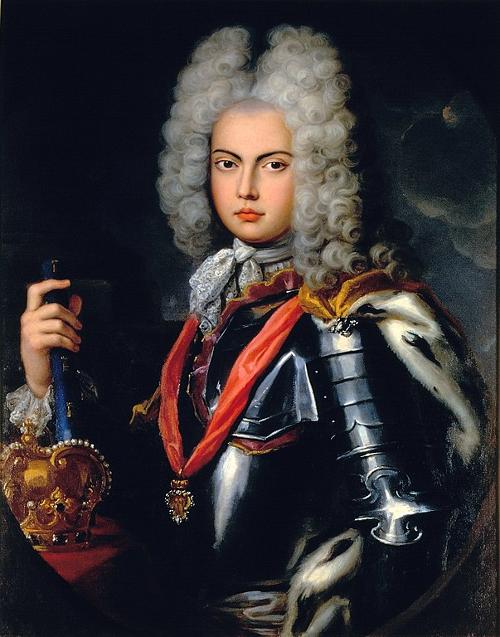 Joao V King of Portugal of the House of BragançaPhoto: Public domain
Joao V King of Portugal of the House of BragançaPhoto: Public domain
In 1662 ties with England were strengthened by the marriage of Catharina Braganca to Charles II. This cost Portugal possession of Bombay. Only remnants remained of the Portuguese empire in the east, but the country's independence was assured. Yet Portugal failed to establish itself as a modern power. The Brazilian gold, which began to flow to Portugal in the 18th century, was spent on pompous buildings by the beautiful Baroque prince Joao V (1707-1750). His successor left the government to his minister Pombal, a typical representative of enlightened despotism. He had Lisbon systematically rebuilt after the 1755 earthquake.
Portugal was a constitutional monarchy in the 19th century with a fairly liberal constitution. Little came of the elaboration in practice. The rural population lived in almost feudal conditions and in great ignorance. Financial scandals from government leaders, the unwillingness and inability of the leading circles to improve the situation, and political abuses in Africa discredited the monarchy. Portugal built up a large colonial empire in Africa in the second half of the 19th century. But in conflicts with more powerful powers, the country always drew the short straw. The Republican Party was founded in 1878. In 1908, King Carlos I (1889-1908) and the heir apparent were killed after an attack by republicans. The young Emanuel II had to flee to England after a military rebellion and popular uprising in 1910. The same day the republic was proclaimed and Teófilo Braga became the first president.
The Republic
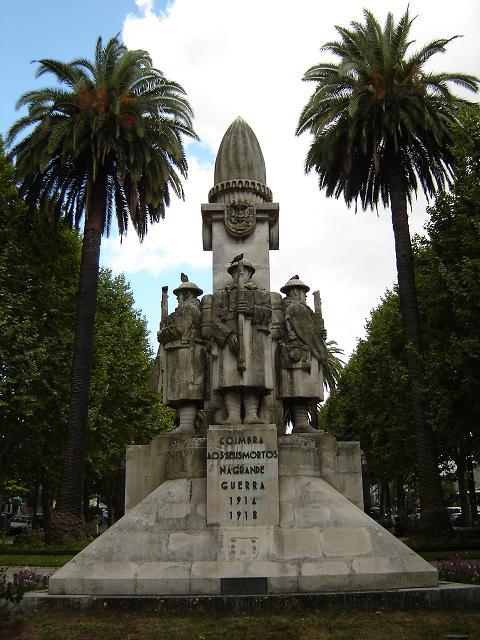 Monument in memory of Portuguese soldiers who died during the first world war in CoimbraPhoto: Joao Miranda CC 3.0 Unported no changes made
Monument in memory of Portuguese soldiers who died during the first world war in CoimbraPhoto: Joao Miranda CC 3.0 Unported no changes made
The new regime did not bring political stability. Financial problems, illiteracy, economic and social issues persisted. From 1910 to 1926, Portugal had no fewer than 44 governments, witnessed 20 coups d'état and changed president 12 times.
Portugal took part in the First World War in 1916 under heavy British pressure. It suffered significant losses in France, defeats in Mozambique and emerged from the war even more distressed financially. Government crises, international loans on humiliating terms, strikes and riots shaped the post-war picture. In 1926 a right-wing nationalist revolution broke out. General António Carmona, president from 1926 to 1951, brought the economist António de Oliveira de Salazar to the Ministry of Finance in 1928.
Salazar had negotiated absolute powers of attorney and drained finances thanks to the dictatorship of the generals. State deficits turned into surpluses.
Salazar
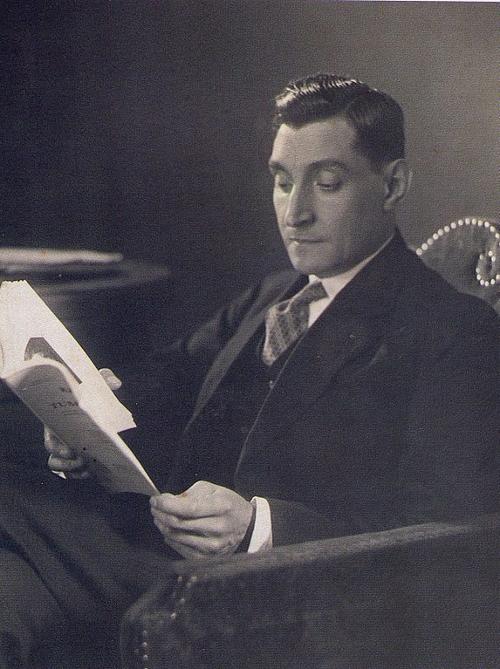 António de Oliveira Salazar (1889-1970)Photo: Public domain
António de Oliveira Salazar (1889-1970)Photo: Public domain
In 1932 Salazar became Prime Minister and a year later he gave the country a corporate political-social basis (Estado Novo) with a new constitution. For 40 years, Salazar would rule Portuguese politics. In fact, it was a mixture of Catholic corporatism and fascism. The ideas of liberalism and socialism, of democracy with political liberty rights and the workers' movement were suppressed as subversive. In the Spanish Civil War (1936-1939), Portugal rendered many services to Franco. After Franco's victory, an Iberian Pact was concluded with them.
Portugal remained outside the Second World War After the war, Portugal joined the United Nations and NATO (1949) without changing its regime. The opposition was silenced.
In 1951 the colonies were given the status of overseas territories, but they remained outside the process of decolonization that took place in Asia and Africa. After a military action in 1961, India annexed the enclaves of Goa, Daman and Diu. Liberation movements started an armed struggle in Africa (Angola 1961, Guinea 1963, Mozambique 1964). Portugal engaged in a triple colonial war involving an army of 100,000 conscripts. The regime became internationally isolated and although hundreds of thousands of Portuguese worked in Western Europe, the economy stagnated. The resistance deepened and broadened. An opposition movement within the armed forces, the Movement of the Armed Forces (MFA), finally intervened.
The Carnation Revolution and Democracy
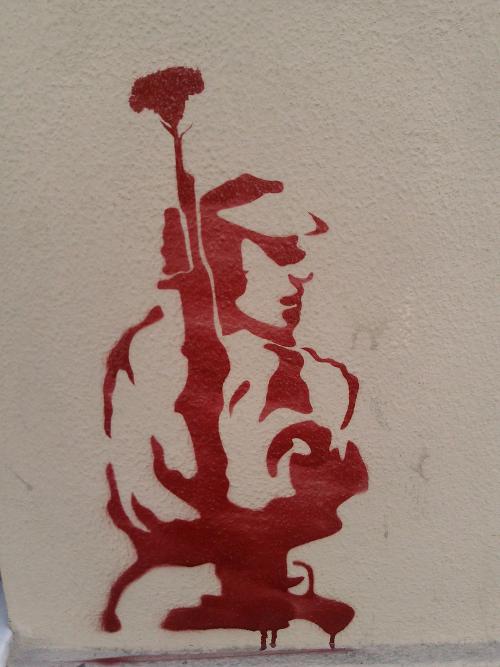 Carnation Revolution PortugalPhoto: IsmailKupeli CC 2.0 Generic no changes made
Carnation Revolution PortugalPhoto: IsmailKupeli CC 2.0 Generic no changes made
The Carnation Revolution of April 25, 1974, which proceeded without bloodshed, disintegrated the "New State" like a house of cards and initiated a revolutionary development in Portuguese society. This development went far beyond the scope of the MFA. Old and new parties organized themselves. In the course of a few years the (social) revolutionary tidal wave was to be contained and a political democracy emerged, for the first time in Portuguese history. The elections to the Constituent Assemblies on April 25 brought a major victory for the moderate parties, the Socialists (SP) under Mario Soares (38%) and the People's Party (PPD) of Sá Carneiro (26%). The Communists (PCP) under Cunhal gained 12.5% and the right-wing CDS 7.7%. Political tensions increased further and on November 25, a 'group of nine' soldiers intervened. It became a turning point, the revolutionary structures quickly lost ground, formal power structures were restored. In 1976 the new constitution came into effect. Soares became prime minister and held the PCP, which had tried to hold as many key positions as possible, outside the new power structures.
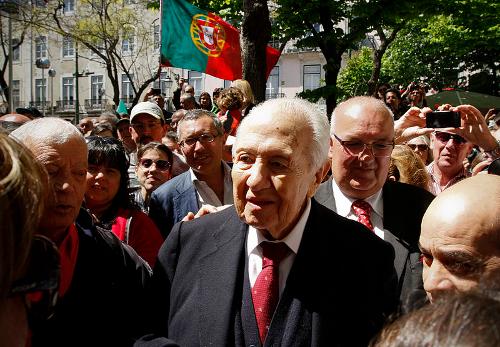 Mario Soares at the 40th anniversary of the Carnation RevolutionPhoto: FraLiss CC 3.0 Unported no changes made
Mario Soares at the 40th anniversary of the Carnation RevolutionPhoto: FraLiss CC 3.0 Unported no changes made
Soares focused strongly on Europe, especially on its German sister party and tried to adapt the country, which was in great economic difficulties, to both the new Portuguese and European relations. In 1979, Sá Carneiro became prime minister of a coalition government of PSD and the right. He and his successors Francisco Pinto Balsemão and, since 1985, Anibal Cavaço Silva followed the path towards more capitalist relations, with the popular Cavaço Silva achieving electoral successes. In 1987 the liberal PSD came to power. The constitution was also amended (1982 and 1989). Eanes was succeeded in 1986 by the socialist Mario Soares, who was reelected in 1991. In October 1992, the PSD won a majority in parliament in elections. Portugal, which had applied for membership of the European Community in 1977, became a full member in 1986.
Dissatisfaction with the bad economic situation was clearly revealed in the municipal elections in Dec. 1993. The left-wing opposition parties, the socialists and the communists made great gains at the expense of the center-right ruling party.
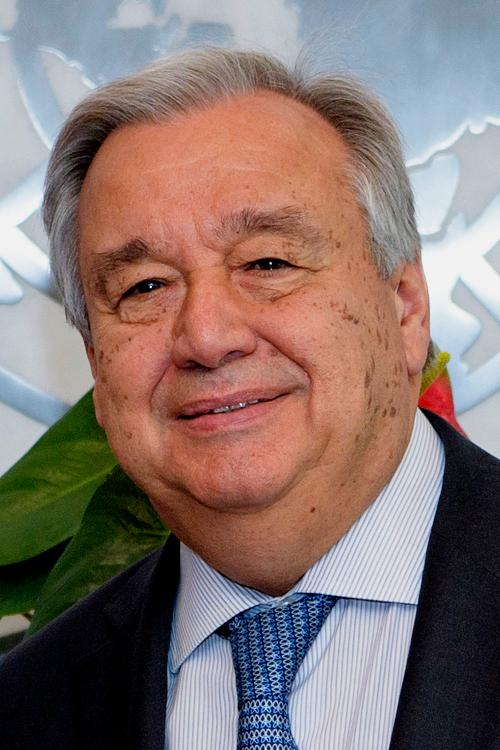 Guterres PortugalPhoto: Cancillería Argentina CC 2.0 Generic no changes made
Guterres PortugalPhoto: Cancillería Argentina CC 2.0 Generic no changes made
This result turned out to be a clue to the parliamentary elections of Oct. 1995, which was a great victory for the socialists, whose leader Guterres formed a government with the independents. The presidential elections ended in victory for the socialist candidate Jorge Sampaio, the former mayor of Lisbon, who succeeded his party colleague Soares. Portugal, which for years had the lowest standard of living in democratic Europe, gradually caught up in the 1990s, thanks to rapid economic growth.
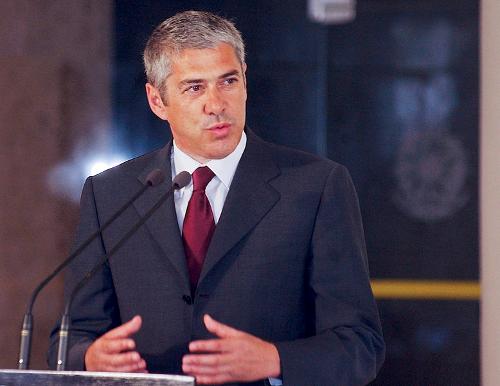 José Socrates PortugalPhoto: Antonio Cruz/ABr CC 3.0 Brazil no changes made
José Socrates PortugalPhoto: Antonio Cruz/ABr CC 3.0 Brazil no changes made
On 20 February 2005, (early) elections took place in Portugal, with the Partido Socialista (PS) winning with an absolute majority with party leader José Socrates. The PSD (the previous government) suffered the biggest defeat in its history in these elections. The 17th Portuguese government since the revolution of April 25, 1974 was formed on Saturday, March 12, 2005, with José Socrates as the new Prime Minister. Head of State has been President Anibal Cavaco Silva (PSD) since early 2006.
In the second half of 2007, Portugal was president of the EU and in April 2008 the Portuguese voted en masse in favor of the new EU treaty. In September 2009, the socialist Jose Socrates wins the elections but loses the absolute majority. He will form a minority government in October.
In March 2010 social unrest arose because of the austerity package imposed as a result of the credit crisis.
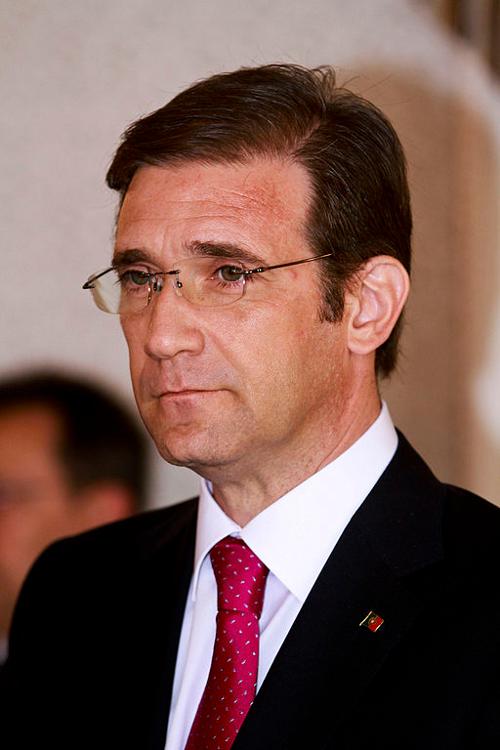 Pedro Manuel Mamede Passos CoelhoPhoto: Cruks CC 3.0 Unported no changes made
Pedro Manuel Mamede Passos CoelhoPhoto: Cruks CC 3.0 Unported no changes made
Pedro Passos Coelho has been Prime Minister since June 21, 2011. The crisis hit Portugal hard in the years 2010 to 2013 with increasingly tougher budget cuts. The economy is showing signs of recovery at the beginning of 2014. In November 2015, socialist leader Antonio Costa forms a center-left government. In October 2016, former Prime Minister Antonio Guterres was appointed Secretary-General at the UN. In February 2017, Portugal withdrew its complaint to the EU over Spain's plan to build a nuclear waste repository that environmentalists fear could affect the Tagus River that flows into Portugal. In return, Spain agrees to share environmental information and consult on the facility.
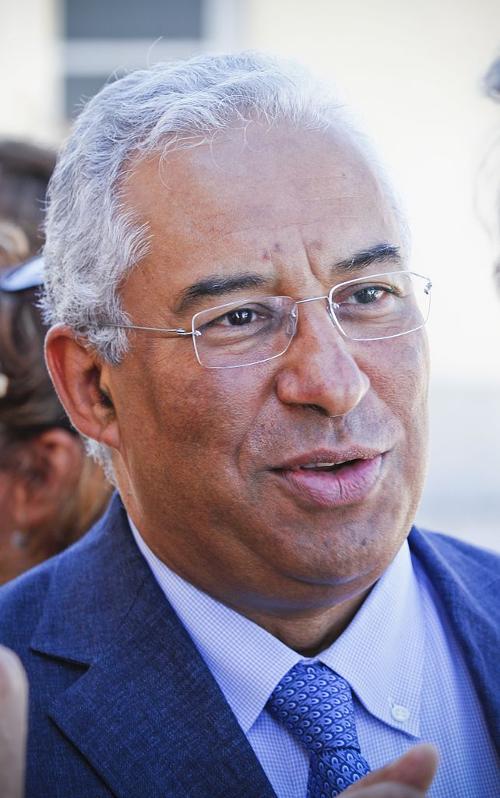 Antonio Costa, PortugalPhoto: Cruks CC 4.0 International no changes made
Antonio Costa, PortugalPhoto: Cruks CC 4.0 International no changes made
In November 2015, socialist leader Antonio Costa forms a center-left government. In October 2016, former Prime Minister Antonio Guterres was appointed Secretary-General at the UN. In February 2017, Portugal withdrew its complaint to the EU over Spain's plan to build a nuclear waste repository that environmentalists fear could affect the Tagus River that flows into Portugal. In return, Spain agrees to share environmental information and consult on the facility. The years 2018 and 2019 will bring further economic growth and the unemployment rate drops significantly to below 8%, in 2013 the unemployment rate was still 17%. After the October 2019 elections, Antonio Costa's socialist party will remain in power. President Marcelo Rebelo de Sousa was reelected as president in 2021
Sources
Champion,N. / Portugal Corona
Dominicus, J. / Portugal Gottmer
Encarta Encyclopedie
Holisova, J. / Algarve ANWB
Keuning, T. / Portugal ANWB
Wakeren, B. van / Algarve, Zuid-Portugal, Lissabon Gottmer
CIA - World Factbook
BBC - Country Profiles
Last updated January 2026Copyright: Team The World of Info